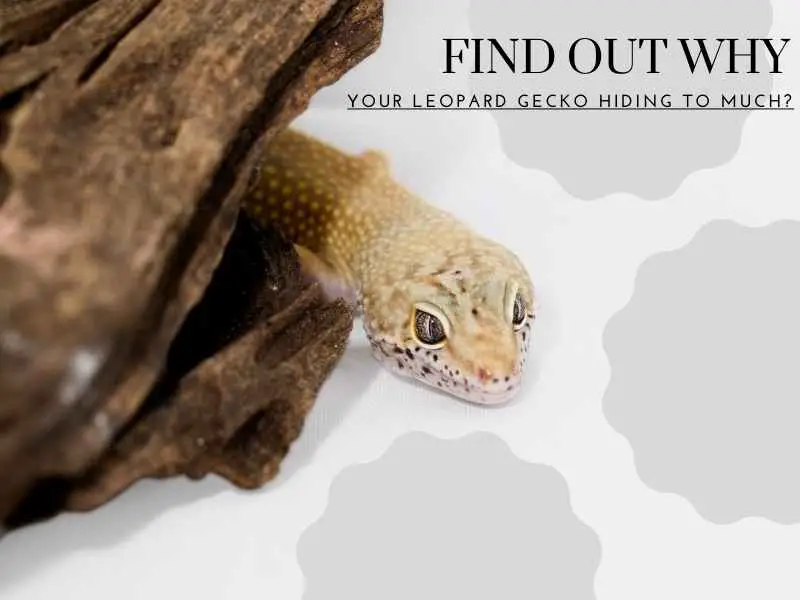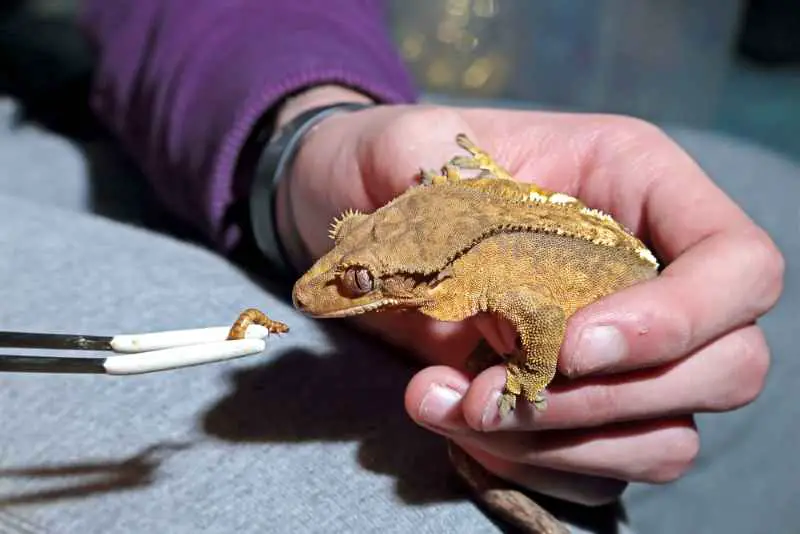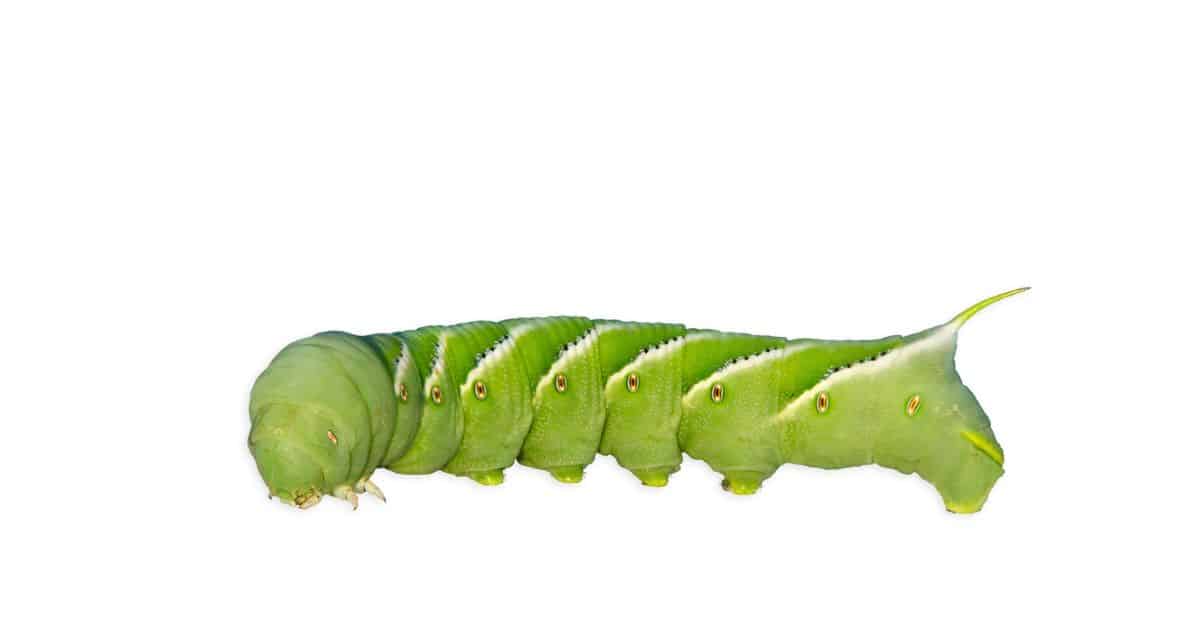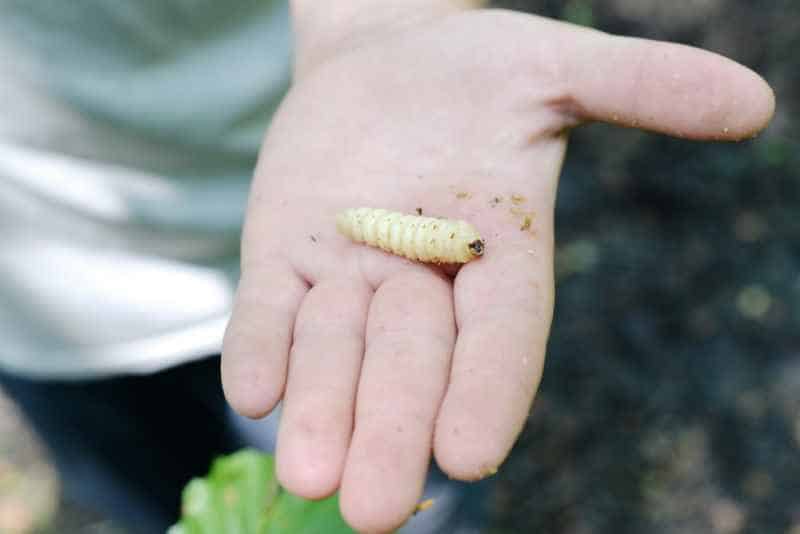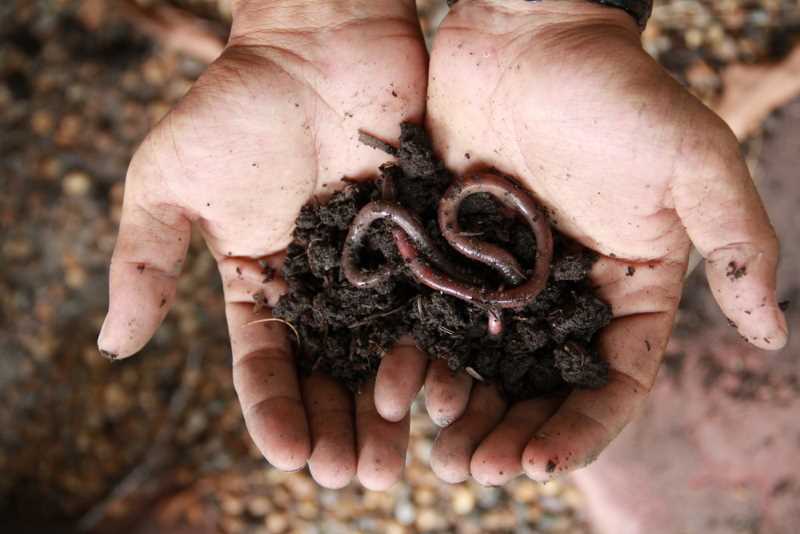Have A Gecko Eating Poop? Why and What To Do
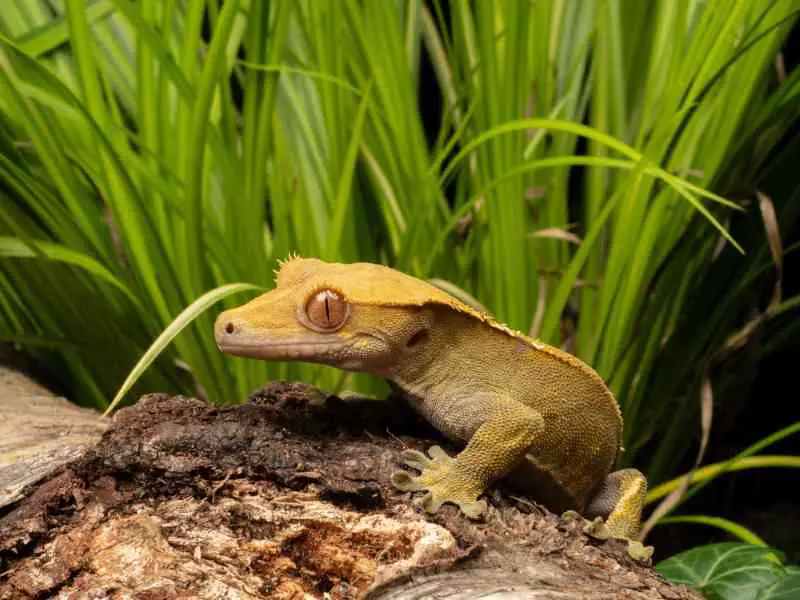
It is pretty gross to come into a room, hoping to handle or care for your crested gecko, and find it eating it’s own poop! Not only is it unpleasant, but it can raise some questions about the gecko’s health. You’ll probably be wondering why and when crested geckos eat their own poop and what to do about it!
It is not normal for a fully mature crested gecko to eat it’s own poop. If a crested gecko is eating its own waste, it is either not getting enough to eat or not getting required nutrients when it does eat.
When a crested gecko eats it’s own poop, it is not only disturbing, but confusing. In this article, we’ll clear up some of that confusion by covering why geckos may eat their own waste, whether or not this is okay, and, most importantly, how to get them to stop eating their own poop in the first place!
Contents
Do Crested Geckos Eat Their Poop?
The shortest answer to the question “do crested geckos eat their poop” is: sometimes, but not under normal circumstances. While some species of animals, like rabbits, monkeys, and even hippos, eat their own poop on purpose, crested geckos are normally not counted among them.
If you do notice your crested gecko’s poop disappearing, or actually witness them swallowing it, you can be sure it is not normal behavior for their species! However, enough crested gecko owners have witnessed it to confirm that it is not impossible for a crested gecko to eat it’s own poo.
Why Are Crested Geckos Eating Their Poop?
Now that we’ve covered the fact that yes, crested geckos do sometimes eat their own poop, let’s answer the most pressing question: why? There are three main causes.
- A Starving Gecko – To a gecko, food that has already been digested is better than no food at all. Though crested geckos do not usually make a habit of eating their feces, those that do it more than once are likely not receiving the amount of sustenance they need! This won’t last long; a gecko who isn’t eating won’t be able to poop after 2 weeks.
- A Lack of Nutrients – A gecko’s body needs certain vitamins and minerals to thrive on. If your gecko isn’t getting this from the bugs and fruits you feed it, it will eat it’s own feces on instinct to try and benefit from nutrients within. Unfortunately for your confused reptile, poop doesn’t have nearly enough nutritional value to meet it’s needs.
- A Simple Accident – Because geckos don’t normally eat their own poop unless starving or unhealthy, the only remaining reason they would eat their poop is if they accidentally believed it was normal food! This is not uncommon, since a gecko turd can look a lot like their diet of worms or bugs. Your gecko may even spit it out once it realizes the mistake!
Why Does a Crested Gecko Eat It’s Poop When…
Below are a list of times crested geckos may be caught snacking on their own waste and the possible causes.
- After Eating – A crested gecko who eats, then turns right around and also swallows it’s own waste, is likely doing so by accident. To a crested gecko’s adorable eyes, poop can sometimes look just like the insects it was just feeding on. One other reason may be that your reptilian friend did not get enough to eat and is hoping to fill up on poop.
- Before Eating – This may be because it is hungry and doesn’t understand that food is on it’s way. As previously stated, a gecko will usually eat poop if their instincts tell them they’re starving. If you put food in your gecko’s tank and it eats poop before eating that food, it may be another case of the gecko believing the poop is a worm or bug, too.
- Right in Front of You – There’s no scientifically-proven significance to a crested gecko eating it’s poop right in front of you, as insulting as it may seem. The good news is, your crested gecko wouldn’t eat anything at all, including poop mistaken for food, if your presence or anything in it’s habitat were stressing your gecko out.
Is It Okay For a Crested Gecko to Eat Their Own Poop Sometimes?
So maybe a crested gecko does eat their own poop for the reasons discussed above. But the question remains: is that a good thing, or a bad thing? Let’s unpack this issue!
It is technically okay for a crested gecko to eat their own poop once or twice, but there are a few dangers to watch out for.
Is it Okay For Crested Geckos To Eat Their Own Poop Often?
As previously stated, crested geckos should only be eating their own poop if they’re confused, hungry, or unhealthy. If you’ve solved each of these possible problems, but your crested gecko keeps on eating poop, then there may be a problem. The two main dangers associated with this strange habit are:
- The Poop Could Contain Parasites – There are some types of parasites that can live in gecko poop and harm your gecko or you if eaten. For example, salmonella bacteria can be found in poop, and if you handle your gecko after it is contaminated with that bacteria, you could suffer from salmonella infection yourself.
- Another Pet Might Suffer – If you have more than one gecko in the same enclosure and one of them eats the other’s poop, there could be trouble. For example, if one gecko eats another’s feces, it might be ingesting supplements or traces of medication that the other gecko ate which were not meant for it, leading to sickness.
What if Crested Geckos Are Eating Their Own Poop and Not Eating Their Regular Food?
If a crested gecko is eating it’s own food, but it is eating it’s own poop, the problem is likely to be with their environment or the food chosen. Remember, in general, crested geckos only eat their own poop if they feel they have no other option.
So the question is, why would a crested gecko stop eating regular food and behave as if they’re hungry enough to eat poop, instead? Below is a short list of reasons why your gecko may decide not to eat:
- Their Habitat is Uncomfortable – If a crested gecko is not kept in a warm environment above 70 degrees, it may stop eating. In addition, if a crested gecko feels like it is in too small a space, it may decide it isn’t safe enough to eat and resort to filling it’s belly with poop even when food is available.
- The Gecko is Stressed – If a crested gecko is not used to it’s tank, or has to get used to a new friend in the tank with it, it may stop eating food for a while.
- The Gecko is Dehydrated – it’s common for some crested geckos only eating after a misting. Usually this is because they were dehydrated, got misted just before feeding time, and come to expect a mist before eating.
- Geckos Aren’t Getting Along – Some geckos who share an enclosure may bully one another and compete for food. If one of your geckos isn’t eating normal food, but poop instead, it may be because they are chased away from their meals too often by their roommate and can only receive nutrients from poop.
How to Get Crested Geckos to Stop Eating Their Own Poop
Now that we understand the many reasons why a crested gecko might start developing this unnatural and icky habit, it’s time to do something about it! Below you’ll find some steps to take to prevent your reptilian friend from eating their own waste.
- Make Sure Your Gecko Is Eating Well – Remember to feed your crested gecko at least three times every week, giving it crickets that have been fed on nutrient-rich veggies at least twice during this period. Don’t forget the nutritious fruits the geckos love, like papaya, apples, apricots, and figs as well as mangos and pears.
- Get Rid Of Poop – If you can spot the poop before your gecko thinks about eating it, remove it quickly!
- Feed Away From Poop – If you can make sure to drop the food for your gecko away from their potty area in their tank, you’ll win half the battle! This way, the gecko won’t have a chance to mistake their waste for food.
In Conclusion
In conclusion, crested geckos are not a type of animal that eats it’s poop on purpose unless they believe they are starving or in need of nutrients. Some of the risks a gecko runs when it eats is own poop is ingesting parasites or endangering the other animals it lives near. To stop a gecko from eating poop, clean the cage and provide plenty of nutritious food!
